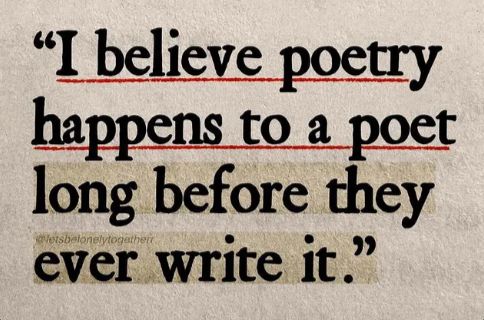The Role of the Poet


“If one day, a people desire to live, / then fate will answer their call / and their night will then begin to fade, / and their chains break and fall.” Among a sea of chants these words are said to have birthed a revolution across Tunisia. Abu Al-Qasim Al-Shabi’s words in his poem ‘Will to Live’ were carried and shared by the masses during the Tunisian uprisings of 2010 and 2011. Beginning as a response to corruption and economic stagnation, the Tunisian uprisings led to the First Arab Spring, a series of anti-government protests, uprisings and armed rebellions that spread across much of the Arab world in the early 2010s. Political slogans of the protests became precursors to Arabic political poetry, and poetry became political slogans reversely.
The way Al-Shabi’s words are written and read above is not as he wrote or intended them, but rather the English translation. World-renowned poet and one of the foremost authors of the Black Arts Movement, Nikki Giovani, writes “English isn’t a good language / to express emotion through / mostly I imagine because people / try to speak english instead / of trying to speak through it” (verse from ‘Maybe We Will Wake Up Singing). The act of translating verbage to the tongue of the colonizer, changes vocabulary and therefore meaning. It also calls into question the idea of the audience. When read in Arabic by the people fighting during the Arab Springs, these words are no longer merely manifestations of language, but a loaded gun in the resistance movement. When translated into English, it publishes the fact that it is our job as United States taxpayers funding external SWANA interventions, to disrupt the imperial war machine.
As one of poetry’s key functions it “coins the language to express and charter this revolutionary demand the implementation of that freedom” (Audre Lorde). Founder of the Black Arts Movement, Amiri Baraka, described the goal of the movement as “to create an art, a literature that would fight for black people's liberation with as much intensity as Malcolm X our ‘Fire Prophet’ and the rest of the enraged masses who took to the streets” (Poetry Foundation).
Stimulation into action is not meant to be reactive to social injustices, but rather cognizant that our daily lives are embedded in the exploitation of the working class and Black and Brown bodies on a global scale. Poet Audre Lorde asks the vital question in her piece “Poetry is Not a Luxury,’ “am I altering your aura, your ideas, your dreams, or am I merely moving you to temporary and reactive action?”